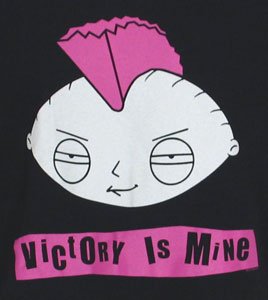Making friends at the Slough of Despond
I hate when people tell me, "You have to check out this book--I know you will love it." It just bugs me. Do you realize what that really means? "I like this book, and since I view you on a relatively equal intellectual plain, therefore you will inherently love this book since I hold the ultimate moral/intellectual/aesthetic standard."
So I will not tell you that you should read The Last True Story I'll Ever Tell. Because honestly, I don't think you will love it. I did.
The Last True Story I'll Ever Tell: An Accidental Soldier's Account of the War in Iraq is a collection of stories told by John Crawford, an infantryman in the Florida National Guard during roughly the first year of Operation Iraqi Freedom. It chronicles, in a eclectic manner, his experiences from the beggining invasion until he returned to the US. He tells how he found out that he was going to Iraq while he was on his honeymoon, and how he had only two credits until graduation. He says that this book is "the story of a group of college students who wanted nothing to do with someone else's war." He tells of ineffective supply and incompetent leadership. His stories don't always have a conclusion, and he makes no effort to systematically develop the reader's understanding of his exact environment or fellow soldiers. He just tells stories.
To some of you, this book will be a vulgar collection of horrifying stories--swear words littered on pages of nihilism and despair. And if you get past the Army colloquialisms and the language that would peel the paint off of a wall, you will find yourself lost in a maze of relativism, conflicted emotions, and uncertainty. Uncertainty about everything other than the emptiness of existence. You may find this book depressing and confusing, disturbing and foreign.
This book represents something entirely different to me. His voice echoes the ones inside my head, and the tone of his writing brings back more emotion than could ever be absorbed. He struggles with his moral compass, just as I did, just as I watched every one of my friends struggle. We searched in vain for the same purpose and moral high ground. We reveled in the same sadomasochistic existence, knowing that as meaningless as today was, tommorrow would be worse. And some part of me loved that, took pride in the fact that I had broken through those limits where sanity was supposed to forsake you. And maybe sanity had.
In the end, this book allows me accept my experiences. It reminds me that my whole year wasn't a dream. I didn't imagine anything. This book gives me permission to move on, and to grow. To lovingly take my memories--my depression, my nihilism, my disillusionment--and lock them away forever. To lock them away in the same deep reccess of my mind that I locked away the memory of loved ones while I did my time in hell.
So I will not tell you that you should read The Last True Story I'll Ever Tell. Because honestly, I don't think you will love it. I did.
The Last True Story I'll Ever Tell: An Accidental Soldier's Account of the War in Iraq is a collection of stories told by John Crawford, an infantryman in the Florida National Guard during roughly the first year of Operation Iraqi Freedom. It chronicles, in a eclectic manner, his experiences from the beggining invasion until he returned to the US. He tells how he found out that he was going to Iraq while he was on his honeymoon, and how he had only two credits until graduation. He says that this book is "the story of a group of college students who wanted nothing to do with someone else's war." He tells of ineffective supply and incompetent leadership. His stories don't always have a conclusion, and he makes no effort to systematically develop the reader's understanding of his exact environment or fellow soldiers. He just tells stories.
To some of you, this book will be a vulgar collection of horrifying stories--swear words littered on pages of nihilism and despair. And if you get past the Army colloquialisms and the language that would peel the paint off of a wall, you will find yourself lost in a maze of relativism, conflicted emotions, and uncertainty. Uncertainty about everything other than the emptiness of existence. You may find this book depressing and confusing, disturbing and foreign.
This book represents something entirely different to me. His voice echoes the ones inside my head, and the tone of his writing brings back more emotion than could ever be absorbed. He struggles with his moral compass, just as I did, just as I watched every one of my friends struggle. We searched in vain for the same purpose and moral high ground. We reveled in the same sadomasochistic existence, knowing that as meaningless as today was, tommorrow would be worse. And some part of me loved that, took pride in the fact that I had broken through those limits where sanity was supposed to forsake you. And maybe sanity had.
In the end, this book allows me accept my experiences. It reminds me that my whole year wasn't a dream. I didn't imagine anything. This book gives me permission to move on, and to grow. To lovingly take my memories--my depression, my nihilism, my disillusionment--and lock them away forever. To lock them away in the same deep reccess of my mind that I locked away the memory of loved ones while I did my time in hell.



0 Comments:
Post a Comment
<< Home